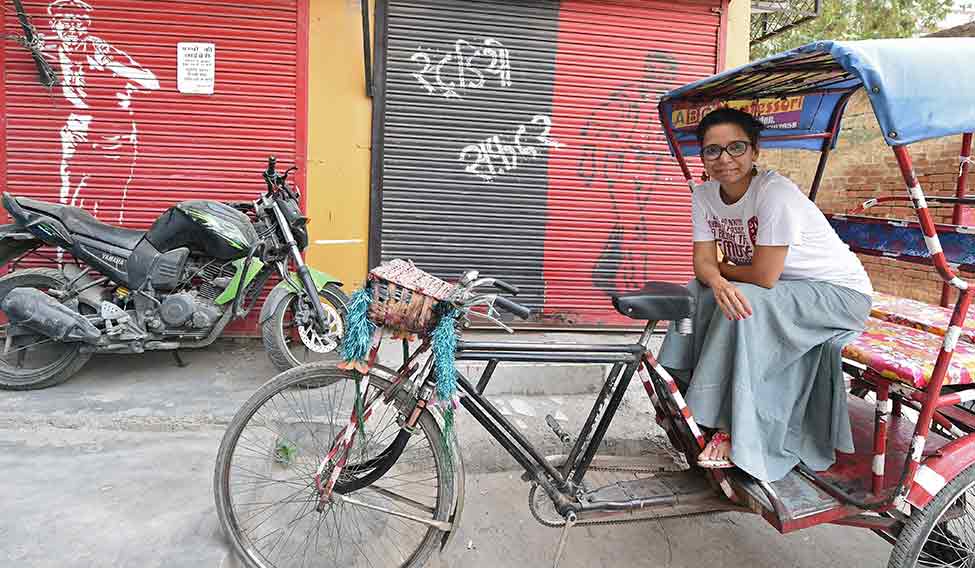It feels delicious like a secret code. Getting off at the Shadipur Metro station, you utter the words 'biyasi [82] number' to the rickshaw-puller outside and he instantly nods. It's like he knows who you are and where you want to go. Along the nearly 2km ride to Shadi Khampur, an old colony in west Delhi, you ask about the origin of the number. “It used to be a stop for bus number 82... now it hardly comes here,” says the rickshaw-puller, pointing to a small market square opposite Ranjeet Nagar police station. “But everyone knows this as biyasi number.” Local history has it that it was the bus that brought sections of the Muslim population here from the Turkman Gate demolition during the Emergency.
Hop down and look around the area of the old bus stop and you find a hand-painted board with May Day written in ochre on the ground floor of a three-storied building. It is a cafe and bookstore. Next to it is a maroon-coloured shutter with 'Studio Safdar' painted in white, and if you peer closely, stencilled images of the late theatre activists Safdar Hashmi and Habib Tanvir can be seen. Hashmi was a communist playwright and activist, who founded Jan Natya Manch (Janam) in 1973. In 1989, he was attacked in the middle of a performance near Delhi; he died the next day, all of 34 years old. Two days later, his wife, Moloyshree, went back to the same spot with the troupe and completed the performance. A black-and-white framed photograph of this historic performance sits at the bookstore now.
While May Day is owned by Leftword Books, Studio Safdar was set up by Janam in 2012. The original idea for Studio Safdar, envisioned by Hashmi, was to set up a 'cultural adda [centre]' somewhere in Delhi where books, art and theatre got seamlessly integrated over cups of tea and coffee. “Janam had existed for 35 years in someone's courtyard or in an empty school auditorium.... We zeroed in on this semi-residential area that we could afford by 2012,” says Komita Dhanda, a volunteer with the theatre group.
The studio, dotted with posters of past performances, is a fluid space, but far from fancy. Instead of an elevated stage, it has an amphitheatre in the middle, which can double as seating for audience if the performing group decides to change the dynamics.
When they started, the group did a project with Ambedkar University that looked at the history of the neighbourhood, inviting residents to share artefacts like an old phulkari dupatta or a chappal, which told their personal histories. “This was an attempt to link local communities, as well as integrate ourselves because we were the outsiders then,” says Dhanda. Recently, the studio has started a Sunday library for children, where volunteers read out stories to them and hold small theatre activities.








